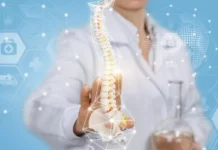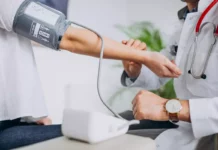A comprehensive study of over 3,000 patients reveals the profound psychological and medical consequences when autoimmune diseases are incorrectly labeled as psychiatric or psychosomatic disorders.

Autoimmune diseases such as rheumatoid arthritis, lupus, and vasculitis present complex diagnostic challenges for healthcare providers. These conditions, characterized by the immune system attacking healthy tissues, often manifest with fluctuating symptoms. Additionally, many autoimmune diseases lack definitive diagnostic tests, further complicating accurate identification.
The research published in the journal Rheumatology uncovered alarming effects of misdiagnosis. More than 80% of study participants reported damage to their self-esteem following a psychiatric misdiagnosis. Nearly three-quarters continued to experience emotional distress from these misdiagnoses, even decades after receiving a correct diagnosis.
The psychological impact of such errors proves deeply traumatic for patients. “One doctor told me that I was making myself feel pain, and I still can’t forget those words. When I was told that I was doing it to myself, I became very anxious and depressed,” shared one study participant. Such experiences create lasting emotional wounds that persist long after medical correction.
Patient trust in healthcare systems suffers significantly after misdiagnosis experiences. Many develop persistent skepticism toward medical professionals and become reluctant to fully disclose symptoms. Some even abandon prescribed treatments due to this fractured relationship with healthcare providers.
The consequences can become medically dangerous. “It really undermined my trust and courage to tell doctors about it. I even stopped taking my immunosuppressive medication because of what they said,” confessed another patient in the study. This treatment abandonment can lead to disease progression and irreversible damage.
Melanie Sloan from the University of Cambridge, who led the research, highlights a critical misunderstanding. “While many doctors intended to reassure patients by pointing to a psychosomatic or psychiatric cause for seemingly unexplained symptoms, such misdiagnoses can cause a host of negative feelings and impact on life, self-esteem and care,” she explains. What doctors may view as reassurance actually inflicts significant harm.
Gender bias compounds these diagnostic challenges substantially. Women experience autoimmune conditions at higher rates than men yet face greater skepticism. Their physical symptoms are more frequently attributed to psychological causes rather than underlying physiological disease.
Experts recommend several strategies for patients navigating complex diagnostic journeys. Maintaining detailed symptom journals can provide valuable clinical information. Bringing an advocate to appointments offers both emotional support and additional perspective. Seeking second opinions becomes essential when facing dismissive responses to symptoms.
Support networks play a crucial role in patient advocacy and validation. Patient groups often provide both emotional support and practical knowledge about navigating healthcare systems. These communities help counteract the isolation many experience during the diagnostic process.
Dr. Sloan concludes with a call for systemic improvement in medical education: “We need to do a better job of helping these patients get better, and we need to educate doctors to look at autoimmune diseases at an earlier stage.” Early recognition remains key to preventing irreversible damage from these conditions.






